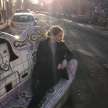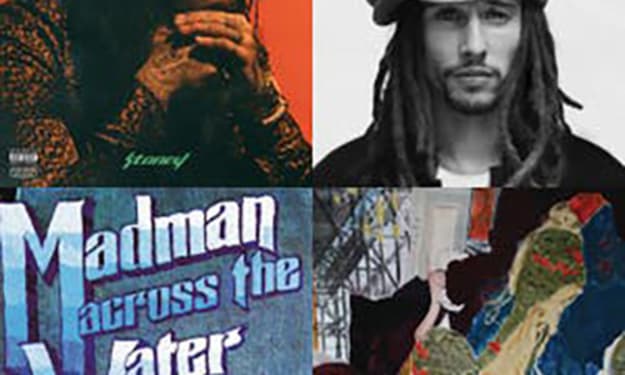Our Friend, Harry
Anti-Semitism Through the Eyes of a Survivor

On the night of November 9, 1938, the Nazi regime began their reign of terror and violence over the Jews of Germany. Referred to as Kristallnacht, or the Night of Broken Glass, many consider it the beginning of the Holocaust. On that night, the Nazis plundered thousands of Jewish businesses and synagogues, following which Nazi officers began arresting Jewish men to be sent to concentration camps.
Fast forward 80 years to November 9, 2018. In a small retirement community in the New Jersey suburb of West Windsor, I had the opportunity to sit down and hear the story of the gruesome night from one of its survivors. Harry Fuld, a regular member of Chabad of the Windsors and a retired salesman, grew up in the southern German city of Weiden. Born in 1929 to a conservative Jewish family, he lived with his mother, father, and one older brother. Harry had always looked the part of a robust, well-dressed man throughout the years that he would come to Chabad of the Windsors as a congregant. Towards his old age, he stopped visiting our synagogue as regularly, but he always remained a close friend to our family. He was readily agreeable to sharing his story with me. He’d already been interviewed several times by organizations looking to gather and publicize the stories of survivors.
In the years leading up to Kristallnacht, discrimination towards Jews gradually set in, worsening steadily over the years. Beginning with Adolf Hitler’s election as chancellor in 1933, the German government imposed many anti-Jewish laws: stripping Jews of citizenship, boycotting Jewish business, and outlawing marriage or intercourse between Aryans and Jews. Harry was warned not to walk the streets alone. When asked about personal abuse or assault at the hands of anti-semites, he answered that he was once attacked by some boys while walking. I questioned Harry as to whether anyone had spoken out against the treacherous shift that was taking place in the country. But his answer was that everyone was far too fearful of the Gestapo to say anything against the Nazi regime. He saw Germany as a cultured country where his family had a comfortable life—up until the rising anti-semitism reached its peak. He had, however, felt the anti-Jewish sentiment been brewing for years beforehand. Still, German citizens doubted the power the Nazi government would go on to hold. Harry’s father didn’t believe that the changing tides would last or that the Nazis would succeed in their malignant plans.
On the morning of November 10, 1938, 9-year-old Harry’s mother woke him to inform him that, “He shouldn’t get excited,” but their synagogue had been vandalized. (The community managed to repair the synagogue and continued to hold services there until March, when the cantor left Germany.) The family sat down to lunch at noon that day, and heard a knock at the door. Officers in plainclothes entered and arrested Harry’s father. Two days later, they received word that he had been killed. Today he’s buried in Munich, and Harry’s been to visit his resting place. His killer symbolically served a year in prison, a miniscule form of compensation for his crime.
Jews from that time onward were given six months to leave Germany. Harry’s mother managed to get the family tickets on the St. Louis ship, bound for Cuba. The journey would become known as the infamous ‘voyage of the damned.’ Carrying 937 passengers, most of whom were Jewish refugees, the ship traveled from Hamburg to Havana. However, when the boat arrived, the passengers were informed that they were unable to enter the country. Harry told me that the decision was “predestined,” as they were informed later that notorious German minister of propaganda Joseph Goebbels had struck a deal with Cuba not to allow the St. Louis passengers into the country. It seemed that, “No one wants the Jews,” Harry said.
The St. Louis sailed on to Florida, where they were also refused to allow to dock. There was even a US Coast Guard cutter stationed near the boat to keep any passengers from jumping and swimming to shore. The boat traveled on to Canada, the final place where they were denied entry. The devastated passengers were returned back to Europe, where 254 perished in the Holocaust.
Harry and his mother and brother traveled to live in London, to the neighborhood of Cricklewood, where they lived from 1939 until 1942. England was not a calm refuge, though. From the months between February 1940 to May 1940, German bombs were dropped nearly every night, between the hours of ten and twelve. Each home had a shelter in the yard, and when the sirens would go off, the family would run out for cover. However, after a while, they stopped leaving each night; Harry’s mother said it was disrupting their sleep, and “if we’re gonna get hit, we’re gonna get hit.” During their time in London, Harry attended school. His mother found a British boy to spend time with him and introduce him to his friends so he could learn to speak English.
Meanwhile, the United States had limited the number of refugees they would accept to just 2,500 a year. Harry’s mother had applied for entrance to America before the family even left Germany, with the intention of waiting in Cuba until they were approved to immigrate. America was known as the golden country where freedom reigned, the dream of the refugees leaving Germany. That only became a reality in 1942, when the family finally sailed to New York. There they lived in Manhattan, where Harry completed high school and then college. He got a job in a sales office in New York, met his future wife through a friend, and went on to have two children.
I asked him about his reaction to the anti-semitic attack in October in Pittsburgh that killed eleven people and injured seven. Harry’s response was that “it was a horrific attack, but not surprising.” Even today, he says, there’s plenty of anti-semitism growing behind the scenes, and Jews are treated as scapegoats everywhere, just as they were under the Nazi regime. Yet it’s different now, he says. While then it was a government and many against few, now it’s hateful individuals who threaten safety as Jews.
But he believes we have an essential responsibility to speak out against any anti-semitism we see and encounter. It’s our duty to confront it head-on by proclaiming our rights as American citizens and proud Jews. Media, he says, is a tool to be used in the fight against anti-semitism, to expose the discrimination as quickly as possible.
Throughout his recounting of his experiences during the war, Harry’s demeanor was collected, with a nonchalant description of his ordeals. It’s hard to tell whether the trauma had numbed him to the point of placidity, or perhaps if having been a child amidst the suffering had made it into something of a reality for him. Of course, there’s always the possibility that he’s simply not an emotional person. Yet I was still surprised that there wasn’t more tangible feeling within his narrative. I’ll still always be grateful for the opportunity to hear such a personal, vivid account of the Holocaust firsthand. There’s no possibility of compensation for Harry’s suffering, nor that of any other survivor. But I do hope that hearing the story of a victim of anti-semitism in its most heinous form and his hopes for tolerance will inspire action, change, and dissemination of the crimes that we vow never to allow to happen again.
About the Creator
Toba Leverton
See more at the unboxed.me.






Comments
There are no comments for this story
Be the first to respond and start the conversation.